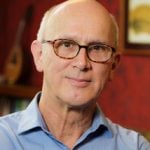
For the Catholic Evidence Guild, the halcyon years were the two decades before World War II. Its well-trained speakers set up their “pitches” in the Speaker’s Corner section of London’s Hyde Park and presented the faith to crowds that sometimes were large and often were rancorous. If you have witnessed the heckling between members of the House of Commons, imagine that in spades. Speaker’s Corner was famous for its hecklers, some of whom seemed to have earned a degree in the subject, and it took much book-learning and even more on-the-stump experience for Guild speakers to handle such people well.
The Guild ran a strict training system. The goal was to enable “the ordinary Catholic to explain the truths of his religion in such a way as to reach the understanding of the crowd.” That sounds straightforward, but in practice it meant a revolutionary change in the minds of zealous young Catholics who entered the Guild’s doors for the first time. Anyone expecting to have an easy time of drawing the masses toward the Mass was in for a surprise. The prospective speaker
talks cheerfully of the Immaculate Conception ([the crowd] thinks he means the Virgin Birth), of Infallibility (they imagine a claim that Alexander VI was entirely sinless), of Extreme Unction (which they suppose to be a kind of torture). How many of us have heard a young speaker lucidly and coherently conveying to a crowd something which he did not mean!
In the Guild’s handbook, Catholic Evidence Training Outlines, the husband-and-wife team of Frank Sheed and Maisie Ward (two of the best speakers the Guild ever had) noted that
[T]he supreme problem is to make contact with the crowd. Remember what the crowd is: a collection of people conscious of no interest in anything the speaker may be likely to say. How are they to be interested? In other words, what can we find already in their minds to which we may attach the truths we want to teach? What, in religious matters, is in their minds? They are not, for practical purposes, to be thought of as Protestants: nor even as anti-Catholics.
Even in the pre-war years—long before the secularization we have lived through—the Guild recognized that most people were nominal Christians at best. It recognized that the one thing “they are interested in [is] themselves. The Guild speaker, when he is building up a meeting [as the Guild called its outdoor events]—and indeed at all times—must be prepared to talk to the crowd about themselves. . . . The key subject here, one of which the crowd never seems to weary, is the question of what man is made for.”
That is still the question today. When I was a child, the old catechism asked us, “Why did God make you?” It provided the answer: “He made me to know him, love him, and serve him in this world and to be happy with him forever in the next.” That is what we are for, and that is what today’s crowds—who sit before the television or the computer screen—need to hear, just as the crowds in Speaker’s Corner needed to hear it. “God, who made us, has told us what he made us for,” wrote Sheed and Ward;
therefore, a knowledge of his revelation is a first condition of intelligent living. . . . One can, by hammering away at this very simple truth, bring them to an absolute horror of not knowing the purpose of their existence and a sheer fascination at the idea that God has enabled man to know. Once they have reached this stage, they are still far enough from believing, but their interest is aroused.
Once you have their interest, the hardest part of evangelization is done.


